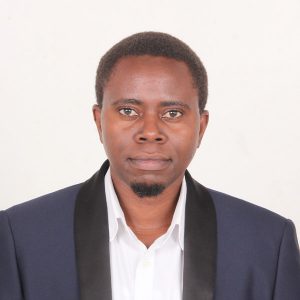 Dr. Godfrey Sama Philipo is a medical doctor from Dar Es Salaam, Tanzania currently enrolled as a student in our MGSC program. Passionate about global surgical care, he developed a deep understanding of the topic, joining the largest medical student association related to surgery InciSioN, completing an MPH in China and ultimately working as a research coordinator at his alma mater, Muhimbili University. He speaks about the challenges of studying a new field, where employment opportunities are not clearly defined and where funding can be difficult to obtain. He tells us that we should place the emphasis on workforce, not solely on clinical frontline providers but also on researchers knowledgeable and dedicated to the field of global surgery. We hope that Dr. Philipo will be able to continue his studies with us and continue to bring his meaningful contributions to our academic institution.
Dr. Godfrey Sama Philipo is a medical doctor from Dar Es Salaam, Tanzania currently enrolled as a student in our MGSC program. Passionate about global surgical care, he developed a deep understanding of the topic, joining the largest medical student association related to surgery InciSioN, completing an MPH in China and ultimately working as a research coordinator at his alma mater, Muhimbili University. He speaks about the challenges of studying a new field, where employment opportunities are not clearly defined and where funding can be difficult to obtain. He tells us that we should place the emphasis on workforce, not solely on clinical frontline providers but also on researchers knowledgeable and dedicated to the field of global surgery. We hope that Dr. Philipo will be able to continue his studies with us and continue to bring his meaningful contributions to our academic institution.
Our LMIC students bring a unique perspective to the cause of global surgical care. Dr. Godfrey Sama Philipo, compares surgical care to the battle against HIV:
“I learned from experiences, such as malaria, such as HIV, which are infectious diseases that are very prevalent in my setting. I saw how interventions to tackle these conditions need a team of people. Not only infectious disease specialists, but also social workers.”
Dr. Philipo makes a plea to train, not only clinicians, but also researchers, in the field of global surgical care. To use his words, “if you don’t have data, then you cannot build a case to the policymakers to be able to improve that area.”
“One of the biggest problems is workforce… If we have people who understand global surgery, if we have enough surgeons, if we have enough anesthesiologists, then it is easy for the next step to have people who can advocate for infrastructure development, and also further training and further research in that area.
… We have the largest burden of disease and the least amount of resources to support training. This becomes a vicious cycle: when you don’t have people, you can’t do research. They will have to concentrate on the clinical care and then will not learn about the situation in itself, what the areas for improvement are. Also, if you don’t have data, then you cannot convince or build a case to the policymakers to be able to improve that area.”
Dr. Philipo emphasizes the importance of staff over stuff:
“If you build theaters and there is no one to use them, then that will be a waste. But if you build people, they will say – yes, we need this kind of infrastructure, we need these kinds of machines. And then this view can the impact in the future.”
To hear the full interview, please click on the video below.
To view the transcript, download it here.
